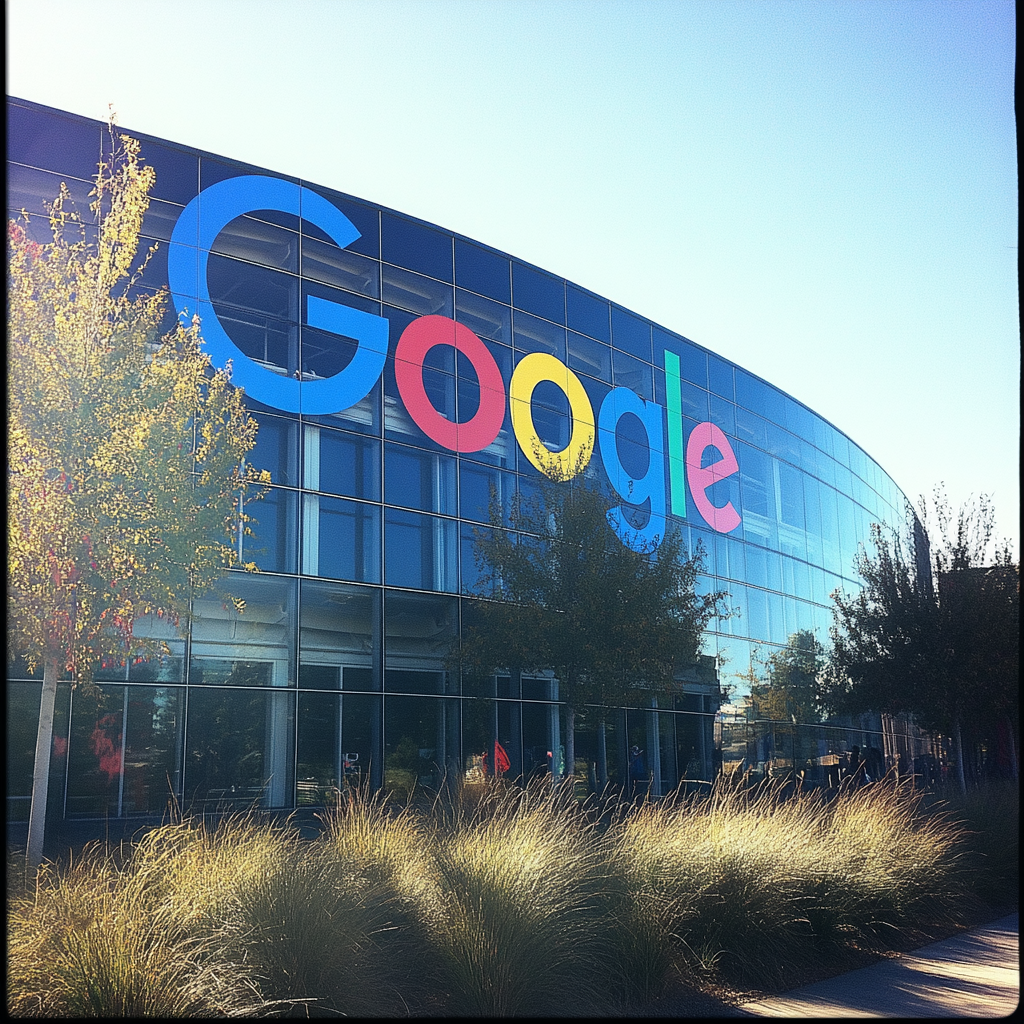

The recent antitrust ruling against Google has the potential to reshape the digital landscape by dismantling monopolistic practices that have long stifled competition in the search market. As new players enter the online search arena, this shift could rejuvenate innovation within search technologies and benefit consumers with improved services and options. Companies overshadowed by Google’s dominance might now have a chance to introduce diverse and creative solutions, fostering a more vibrant ecosystem. Furthermore, businesses reliant on search engine marketing can adapt to this newly competitive environment, which may lead to more favourable advertising rates and greater flexibility in their strategies. The Justice Department’s actions could signal a new era where competition flourishes, paving the way for advancements and enhancing user experiences across digital platforms, particularly regarding default search engine choices.
The recent antitrust ruling against Google, as the judge rules, creates a ripple effect that will significantly impact its competitors and partners in the digital realm. Competitors like Microsoft’s Bing and DuckDuckGo stand to gain valuable market share. This antitrust decision paves the way for enhanced competition and innovation in search technologies, challenging Google’s search engine dominance. With the dismantling of exclusive agreements favouring Google, these alternative search engines can now present themselves as viable options, encouraging users to explore different solutions. Additionally, businesses that traditionally relied on Google for their online advertising business may need to pivot, diversifying their marketing efforts across multiple platforms in response to potential penalties Google could face. As partnerships with Google are reevaluated, technology, device manufacturing, and software development firms may seek collaborations with alternative search providers, fostering a more balanced and competitive market environment that ultimately benefits both businesses and consumers, as the Justice Department emphasises.
As the digital advertising landscape shifts due to recent regulatory changes and antitrust laws, businesses must adapt to a more competitive ecosystem. The dismantling of Google’s monopolistic practices, highlighted by District Judge Amit Mehta’s rulings, presents a unique opportunity for companies to diversify their advertising strategies. With alternative search engines emerging as viable contenders, businesses should expand their search advertising efforts beyond Google, exploring newer platforms that may provide different approaches and better rates. Understanding the implications of this shift is crucial; adapting to the presence of new players requires flexibility and innovation in how a company’s search engine marketing engages with consumers. Moreover, as partnerships with Google are reevaluated, companies should actively pursue collaborative opportunities with up-and-coming search providers, strengthening relationships that can enhance their marketing reach and improve their overall digital strategy. By staying informed and agile, businesses can unlock new avenues for growth and remain competitive in this transformative advertising ecosystem.
Recent developments in the digital landscape could mark a turning point for challengers like Bing and DuckDuckGo, potentially positioning them as formidable competitors to Google as the default search engine. With the opportunity to capture market share following a federal judge’s decision regarding Google’s monopolistic practices and antitrust laws, these alternative search engines can leverage their unique offerings to attract users seeking more privacy or diverse search experiences. With its integration into Microsoft’s suite of products, Bing can enhance its visibility as it competes for the title of the best search engine. Meanwhile, DuckDuckGo capitalises on the growing demand for privacy-focused internet search options. As consumers become aware of their newfound choices, both search engines benefit from increased competition and innovation in the market, fostering a landscape that encourages advancements in search technologies, ultimately enriching user experiences and drawing attention from the Justice Department’s antitrust division.
The recent ruling by a federal judge against Google has initiated a notable shift in the strategies of device manufacturers and browsers as they adapt to a more competitive online search landscape. With the district court challenging Google’s monopoly in search, manufacturers now have the chance to explore partnerships with other search engines, potentially setting them as default options on their devices. This development could offer users wider choices while promoting competitors like Bing and DuckDuckGo. Additionally, browsers must revise their functionalities to emphasise these new options, catering to consumers seeking privacy and diverse search experiences. As the dynamics between search engines, device manufacturers, and browsers evolve during this transformative time, the outcome may stimulate innovation and create a more balanced digital ecosystem—ultimately benefiting users with enhanced functionality and services while impacting Google’s history of dominance worth billions of dollars.
In the wake of District Judge Amit Mehta’s ruling on Google’s antitrust case, businesses need to proactively adjust their search marketing strategies to succeed in a newly competitive environment. This era prompts a shift from dependence on Google’s search monopoly, urging marketers to explore diverse advertising platforms that provide unique value propositions and potentially more favourable rates. Understanding the dynamics of alternative search engines like Bing and DuckDuckGo will be essential, as these platforms attract users seeking tailored and privacy-oriented experiences. Furthermore, companies can benefit from forming partnerships with these emerging competitors to foster innovative collaboration and enhance marketing effectiveness. By embracing flexibility and creativity in their strategies, businesses can navigate this transformed advertising landscape, breaking free from Google’s illegal monopoly and ultimately achieving greater reach and engagement with their target audience.
Following the antitrust ruling, the tech giant Google finds itself at a pivotal juncture, where the prospect of an appeal looms as a vital consideration for its future operations. Should the Department of Justice ruling be upheld, Google may need to implement significant structural changes to comply with regulatory demands and foster a more competitive search market. This could involve reevaluating its business practices, curtailing exclusive agreements with partners, and potentially divesting certain segments of its search and advertising business. Such reforms would restore competitive balance and influence the strategies of businesses that depend heavily on Google’s search engine, compelling them to adapt to an ecosystem where alternatives gain prominence. As Google navigates this complex landscape of global affairs, the outcomes of the appeal process will shape the future of digital advertising and search technologies, defining an era characterised by greater diversity and user-centric innovation that Google offers.
The recent antitrust ruling by District Judge Amit Mehta against Google marks a significant resurgence of competition and innovation in the search engine landscape, creating an environment ripe for alternative providers to flourish. As businesses and consumers embrace this shift, search engines like Bing and DuckDuckGo are well-positioned to carve out their own niches by emphasising unique features such as privacy and integration with other services. This competitive spirit will likely drive technological advancements, compelling all market players to enhance their offerings to attract users. With the need for businesses to diversify their advertising strategies, we can expect a more dynamic and user-centric ecosystem as companies actively explore partnerships with emerging search platforms and adapt to new consumer preferences. Ultimately, this transformation benefits users with improved search functionality and a broader array of choices, redefining engagement in the digital advertising.
The dismantling of monopoly practices, particularly in search engines, paves the way for a more dynamic digital ecosystem fostering competition and innovation. As alternative search engines like Bing and DuckDuckGo gain traction, they offer users choice through privacy-focused and varied search experiences driven by heightened awareness of their options. This shift challenges incumbents like Google, prompting Google’s president to rethink their strategies and create a more equitable marketplace where diverse services can thrive. With device manufacturers and browser developers adjusting their partnerships and functionalities, we are witnessing a recalibration of power dynamics, emphasising user-centric innovation. Ultimately, this transformation champions improved search technologies and enriched user experiences, fostering a digital landscape that values choice and caters to a broader array of consumer needs.

This website uses cookies to improve your experience. Choose what you're happy with.
Required for the site to function and can't be switched off.
Help us improve the website. Turn on if you agree.
Used for ads and personalisation. Turn on if you agree.
This website uses cookies to improve your experience. Choose what you're happy with.
Required for the site to function and can't be switched off.
Help us improve the website. Turn on if you agree.
Used for ads and personalisation. Turn on if you agree.